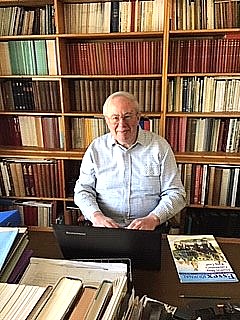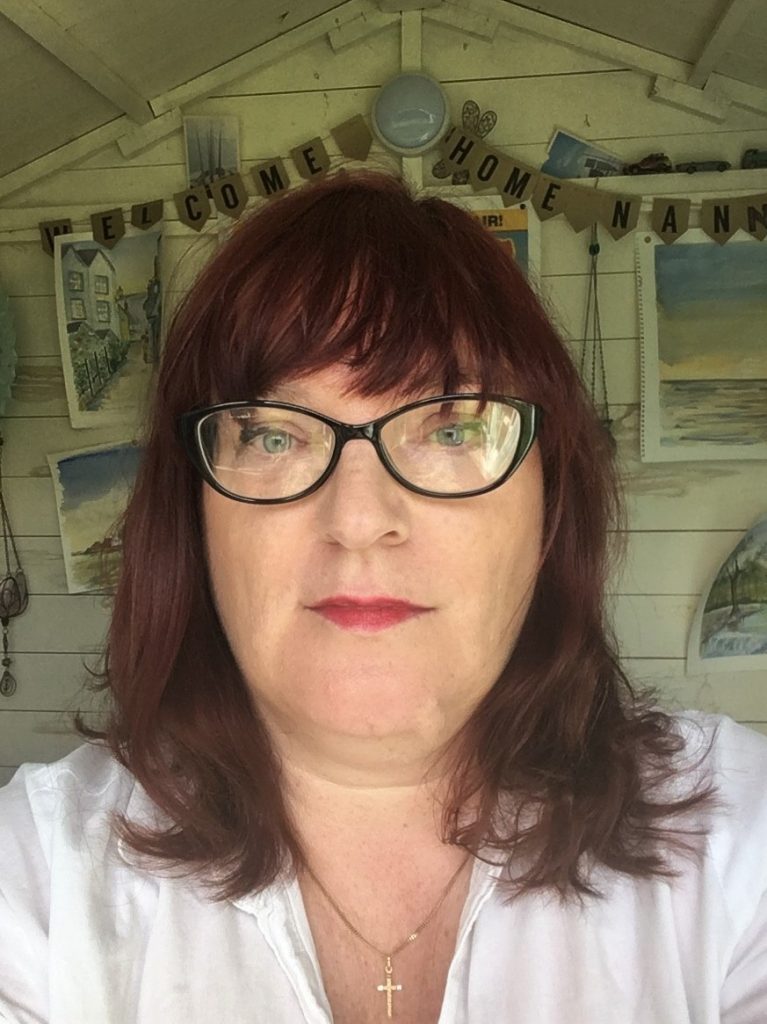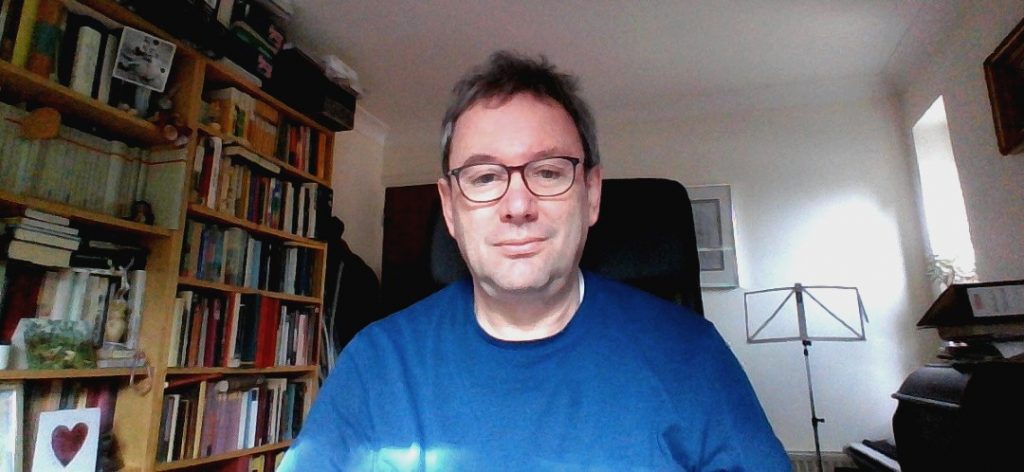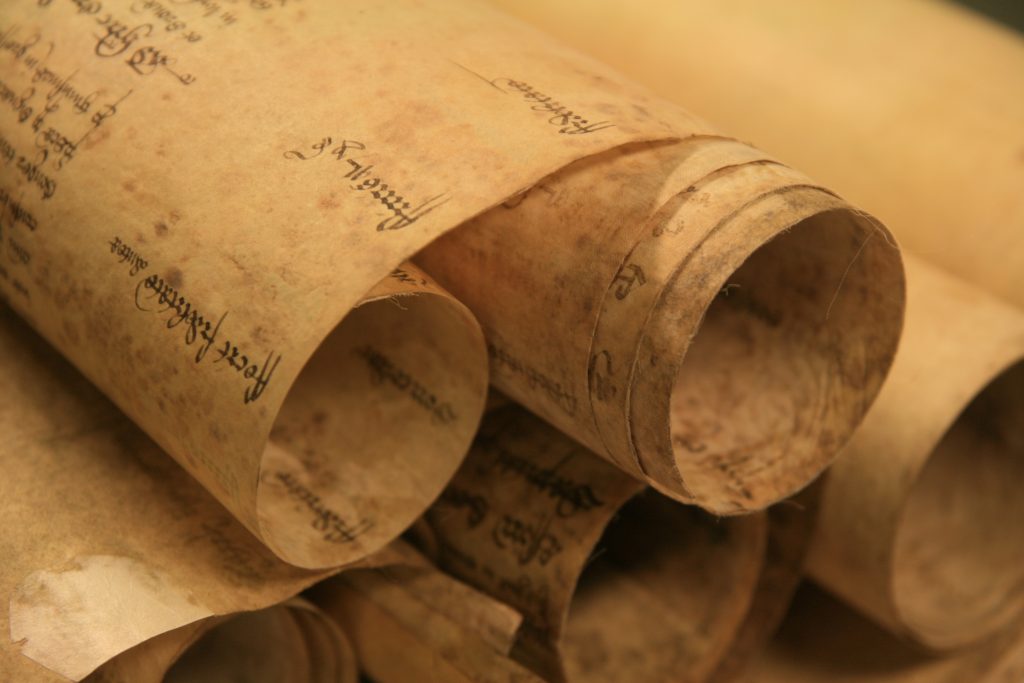With Chris Thornton
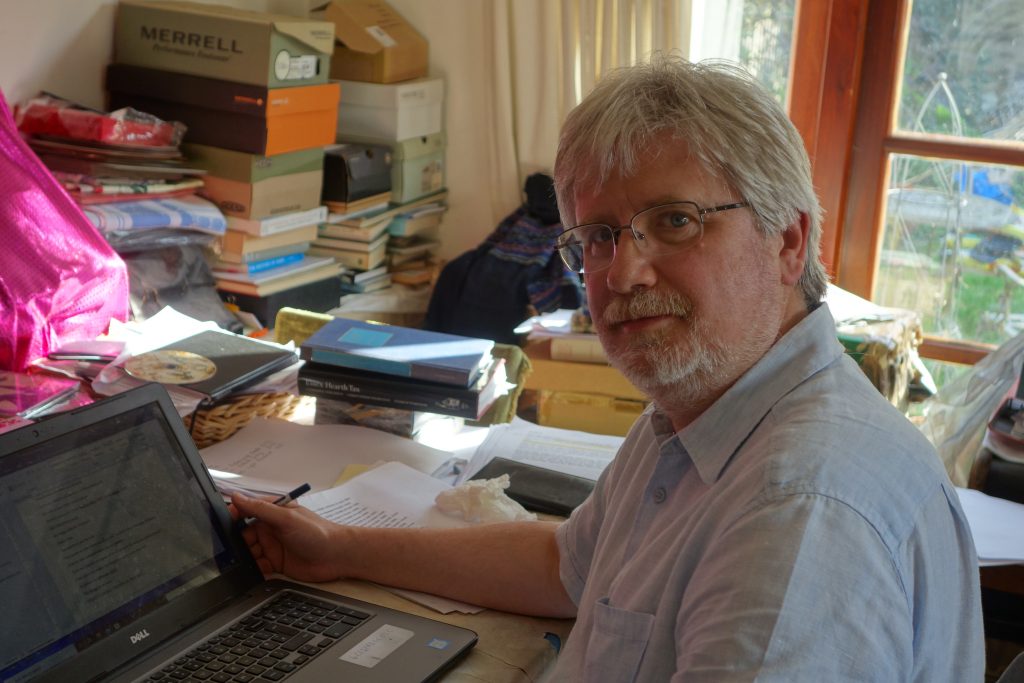
I am probably known to many as the editor of the Victoria County History of Essex, a project researching and publishing historical accounts of communities in Essex to a standard format as a work of reference.
I am also currently Chairman of the Friends of Historic Essex, the charity that supports the ERO, and a Vice-President (and former officer) of the Essex Society for Archaeology and History. My personal research interests lie in medieval economic and social history, and also landscape history and buildings. I live with my wife Lynn in the centre of Maldon and we have a daughter, Ruth, who is currently studying French and German at the University of Bristol.
Where is your ‘office’?
My ‘official’ office is a room in the centre of the house (the former dining room), but it is currently so overrun with stacked books and paperwork I can’t work in there! I have also taken over the dining table in the bay window in the lounge, which is currently occupied with the notes and books for VCH work on Harwich. My current working space is therefore another dining table in the garden room at the back of the house.
Do you have a view out of a window when you are working? What is it and is it a distraction?
The view out of the garden room is, unsurprisingly, of the rear garden. It is only a small space, but south facing, green and peaceful, backing onto Maldon’s Quaker meeting house grounds. It won’t surprise anyone who knows me to learn that I have lost both the keys to the patio doors – so we have to exit out of the side kitchen door!
The garden attracts lots of birds which I enjoy watching, and they will probably like it even more as I have plans to dig up the lawn and plant potatoes. Planning my own personal dig for victory can certainly be (enjoyably) distracting.
What Essex research are you catching up on? Will this result in something published?
I have occasional work to do seeing VCH Essex XII (part I) through the publication process, and preparing XII (part II) to start on the process later this year. I am also completing some research on Tudor sources on Harwich for VCH Essex XIII, including court rolls (ERO), the Harwich Town Book (churchwardens’ accounts) (Harwich Town Council archive) and Prerogative Court of Canterbury wills for Harwich (TNA). I have digital photographs of all or part of these sources.
I also have the final amendments to make to an edited volume Dr Thomas Plume, 1630-1704. His Life and Legacies (University of Hertfordshire Press, forthcoming 2020).
And, finally, an introductory article on Colchester’s history to accompany a new volume funded by Colchester Borough Council which brings together all of Dave Stenning’s fabulous reports on Colchester buildings.
Do you set yourself a strict timetable to work to or just pick up your research as and when?
I was always a night owl, but of recent years increasingly find I can’t work past mid-evening as my brain turns to jelly. With research and note-taking I find I can work solidly to a timetable. With writing I find I have to be in the mood and then the keyboard takes a hammering until inspiration runs out.
Do you have a favourite online resource?
A little dull, but probably the ERO, TNA and BL catalogues.
What is your favourite research beverage and snack?
It has to be tea. At the moment a large pot – one part English breakfast to one part Earl Grey. Snack intake is reduced due to my type 2 diabetes, but if allowed by the cake-police (Lynn) then any sort of bun or biscuit will do (I’m not that fussy), although admittedly partial to a home-made scone.
Apart from the news, is there anything that distracts you from your research?
I play a few on-line games with old school friends, several of them now living in the US. It’s proved a good way of staying in contact as we berate each other about tactical ineptitude or muddled strategy.
What are you most looking forward to when you are able to visit ERO again?
Some cheery conversation with the archivists and searchroom staff, and meeting up with other researchers and asking for and sharing advice and finding out about other interesting research in progress. I think this is now called networking.

